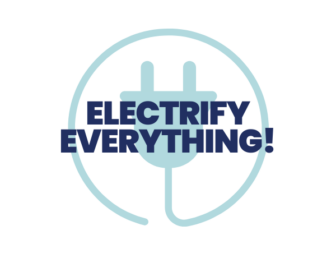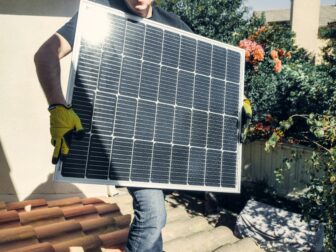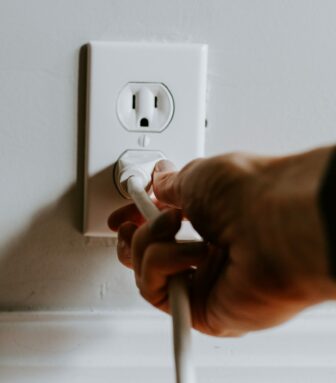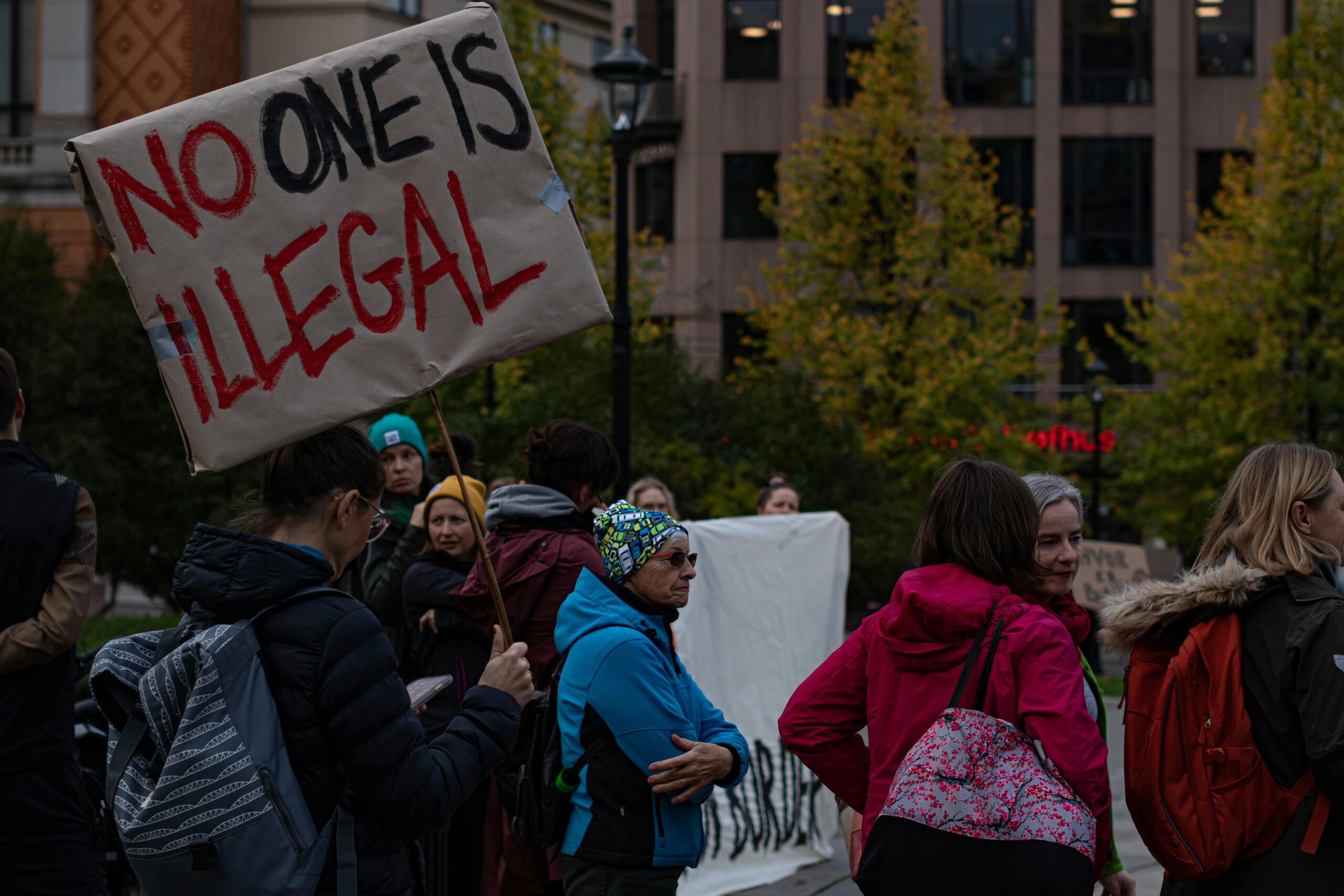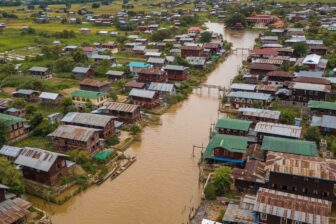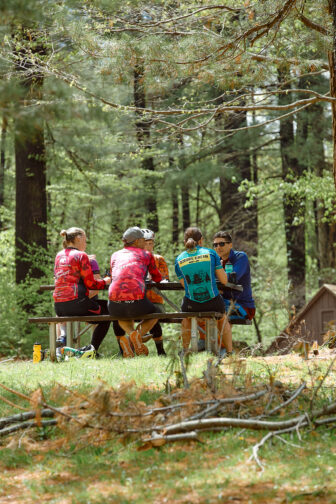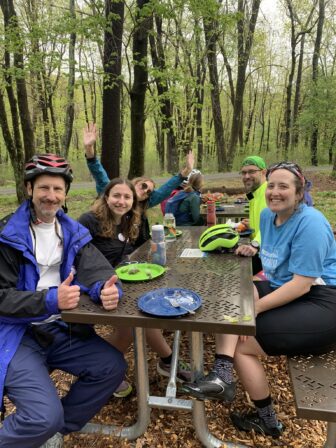What Marching Alongside 75,000 Activists Reminds Us
My alarm went off bright and early on the morning of September 17. It was still dark as I pulled myself out of bed just before 5 am. I checked my phone and saw that Mason, CCANs Central Virginia Organizer, had already met up with a group of volunteer activists he had rallied together, boarded them all onto a charter bus, and was headed to the March to End Fossil Fuels in New York City. I splashed some water on my face, slipped on my comfiest tennis shoes, and made my way to College Park, MD where Masons’ bus was stopping to pick up myself, my colleague Mustafa, and a group of additional volunteers from the surrounding area. By 7:30 am, 47 CCANers were on the bus ready to make history.

As we drove I took a moment to look around at the people who had so graciously given up their Sunday to be with there with us. They came from all sorts of backgrounds, from teen activists and college students to retired community members. All there to protest for a liveable future. We all got to know each other on the way there, sharing why we chose to come, singing march chants to get excited, and of course, sharing what felt like a lifetime of coffees to make sure we were all properly caffeinated.
“I felt compelled with every fiber of my being that I needed to be there,” said Gerri Carrillo of Amelia County, Virginia.
As for me, I was there because, for the first time in a long time, climate anxiety was overriding the hope I felt about the progress we were collectively making. I turned 26 a few months ago and have been thinking about the future. I was inundated with thoughts about how climate change would affect the world I grew up in and how different it would be for my future children. I could already see it, the effects of climate change were no longer just things I read about in the news. It was happening right in front of me. Smoke from wildfires covering half the country, continuous flooding in my hometown, our fading winters. It all felt completely out of my control. It was easy to feel like I was solely responsible for a global solution. By getting on that bus that humid Sunday morning, I felt like I was taking back power over what I wanted my future to look like. When we arrived, standing there on the streets of New York City, surrounded for miles by other activists, a surge of hope rushed to my cheeks. I could see that there were thousands and thousands and thousands of people who would continue to fight with me. I was not alone.

As we marched with herds of other activists down 52nd Street, demands for a paradigm shift echoed in the air: End the era of fossil fuels.
The plan was this: thousands of us would flood the streets the weekend before the UN Climate Ambition Summit, demanding that President Biden lead the world away from fossil fuel reliance. It was time to call on Biden to take decisive executive action to halt new oil and gas leases in the United States. This 2023 March to End Fossil Fuels had the momentum to be not just a massive demonstration, but a crucial moment in Biden’s presidency. It marked the largest climate mobilization he had witnessed since taking office in 2021.
And it felt like it. More than 75,000 people protested with me, demanding big changes. The number of young people there lit a fire under my butt. The barely threes on their fathers’ shoulders, or the grade schoolers playing tag through the masses (much to their guardians’ chagrin), or the college students who joined me on the CCAN bus. If they could find the courage to keep marching, so could I. Our presence in those streets was a testament to the collective power of individuals who refuse to be bystanders in the face of an escalating climate crisis. A hopeful possibility of a universal understanding that the transition away from fossil fuels was not only necessary, but imperative for the health and well-being of our planet and its inhabitants. And we were there to make it happen.
“When the air we breathe is under attack, what do we do??” I screamed into the bullhorn Mason had so kindly given me the honor of monitoring (it was my first time using one at an event this size and I was psyched). A few hundred people shouted back, “Stand up!! Fight back!!” I continued, “When the water we drink is under attack, what do we do??” “Stand up, fight back!!”

Our message was clear, we need leaders worldwide to take meaningful climate action, now. It was a declaration that we, as citizens, were united in our determination to protect the Earth and its inhabitants. We marched for our children, our friends, the guy who cut us in line last week, our parents and siblings, the kid who used to push us on the playground, for those who could not march. That day we marched for humanity as a whole, reminded that Earth will survive climate change, but we might not. Stand up. Fight back.
Ending new drilling for gas and oil
Would be our hearts’ desire.
Deadly fossil fuels will kill us all,
Setting Mother Earth on fire!
– Frances Broaddus-Crutchfield, Midlothian, VA
We came to the end of our march path and settled in to listen to speakers such as Alexandria Ocasio Cortez, a sixteen-year-old climate leader, and even an eight-year-old activist with his mother. Hearing their speeches made me hyperaware of one thing: we were all scared – but we were all here. I was situated next to a loudspeaker, but even with my ears ringing at the end of each speech, I could hear that all of these voices echoed in part of a global chorus demanding a massive shift. We have the home team advantage in this fight, and boy do we have something to fight for. The thought of the loss we’re faced with if we do nothing is enough to make anyone shut down completely. But scared as we were, we all showed up to do something about it.

Growing up, my dad often repeated a popular Nelson Mandela quote to us, “Courage is not the absence of fear, but the triumph over it.” Continuing to push on and advocate for justice in the face of overwhelming fear. That was us, courageously pushing forward, pushing for change. The energy and determination that coursed through the crowd was a forceful reminder that the fight against climate change was a battle we could not afford to lose. This march was not an isolated event, but a catalyst for ongoing action. It was a rallying cry that reverberated through the halls of power, calling for a transformative shift in our energy policies. The momentum generated on that day will serve as a foundation for the continued battle to end our reliance on fossil fuels.
In the aftermath of the march, as we climbed back on our bus and returned to our homes and communities in the DMV area, we carried a renewed sense of purpose. We were armed with the knowledge that we were on the front lines of the largest-ever march with the primary demand of abolishing the fossil fuel industry. Our voices could have the power to effect real change. “Being there among 75,000 other ‘drops in the bucket’ felt amazing!” said Carillo. “I am not young and I am not able-bodied, but I came home thinking, ‘I’ve got work to do and for the rest of my life!’”
Even now, as I sit in my apartment in Rosslyn, VA, writing this piece, I am reminded that the battle has only just begun. A group of 30 climate protesters from Extinction Rebellion gather in the street below me, blocking traffic and chanting. “What do we want?” “Climate Justice!” “When do we want it?” “Now!” Revolution is in the air, can’t you smell it? I think I’ll wrap this up and head down to join them.
The March to End Fossil Fuels was inspiring and meaningful, but they remind me that the battle is yet to be won. Until it is – I’m standing up, and I’m fighting back. But I am not alone, and neither are you.
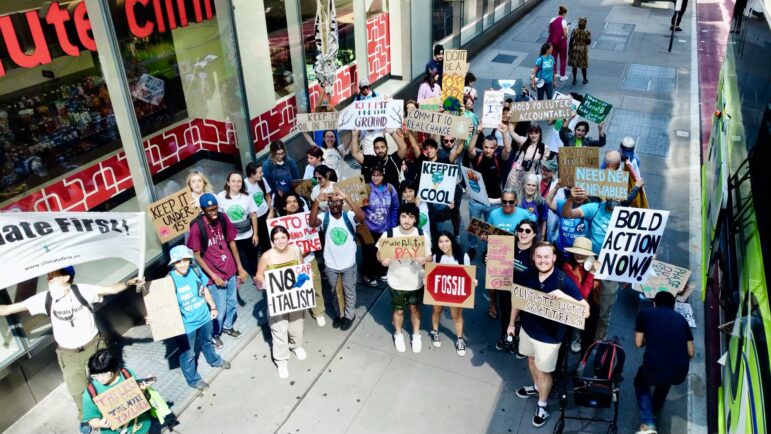
Are you ready to take the next step to end the era of fossil fuels? Sign the petition calling on Biden to end fossil fuels now.
Then become a CCAN Action Member and find your local team.



















